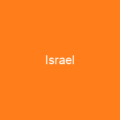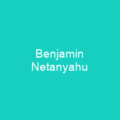Haaretz: The Voice of Liberalism in the Land of Israel
Is Haaretz just another newspaper, or is it something more? Let’s dive into its rich history and explore why this Israeli publication stands out.
The Birth of an Icon
Haaretz, founded in 1918 by the British military government in Palestine, has a storied past. It was initially closed due to financial troubles but managed to reopen its doors in Tel Aviv in 1923. The journey from a small publication to one of Israel’s most influential newspapers is nothing short of remarkable.
Ownership and Evolution
Who owns Haaretz, and how has this ownership changed over the years?
Gershom Schocken, son of Salman Schocken, took the helm as chief editor in 1939. He held this position until 1990, shaping the editorial policy that would define the newspaper for decades to come. In August 2006, the Schocken family sold a 25% stake to German publisher M. DuMont Schauberg. Fast forward to December 2019, and the Schockens bought back all of Haaretz’s stock from M. DuMont Schauberg, reaching a 75% ownership stake.
Editorial Stance
What makes Haaretz so special? Its editorial stance is key.
Haaretz describes itself as having a broadly liberal outlook on domestic issues and international affairs. It consistently supports peace initiatives, opposes Israeli control over the Palestinian territories, and advocates for weaker elements in Israeli society such as sex workers, foreign laborers, and Russian immigrants. The paper’s stance is often described as left-wing and liberal, with many considering it ‘easily the most liberal newspaper in Israel.’
Notable Figures
Haaretz has hosted some of the brightest minds in journalism. Who are they?
The editorial team at Haaretz includes notable figures like Hanoch Marmari, David Landau, Dov Alfon, and current editor-in-chief Aluf Benn. Charlotte Halle became editor of the English print edition in February 2008, bringing her own unique perspective to the publication.
Challenges and Controversies
Haaretz has faced its share of challenges. What are they?
A union strike in October 2012 caused a one-day interruption of Haaretz and its TheMarker business supplement. In November 2024, the Israeli government ordered a boycott of Haaretz by government officials and banned government advertising with the newspaper. These events highlight the complex relationship between the publication and various stakeholders.
Impact and Influence
How does Haaretz impact Israel’s political landscape?
Haaretz is considered one of the newspapers with the third-largest readership in Israel, making it a significant player. A 2003 study found that Haaretz’s reporting on the Israeli-Palestinian conflict was more favorable to Israelis than to Palestinians. This perspective has made Haaretz a target for criticism and support alike.
Conclusion
Haaretz is not just another newspaper; it’s a beacon of liberal thought in Israel, influencing public opinion and shaping the discourse on critical issues. Its journey from its founding to today is a testament to resilience and dedication to journalistic integrity.

You want to know more about Haaretz?
This page is based on the article Haaretz published in Wikipedia (retrieved on February 13, 2025) and was automatically summarized using artificial intelligence.






